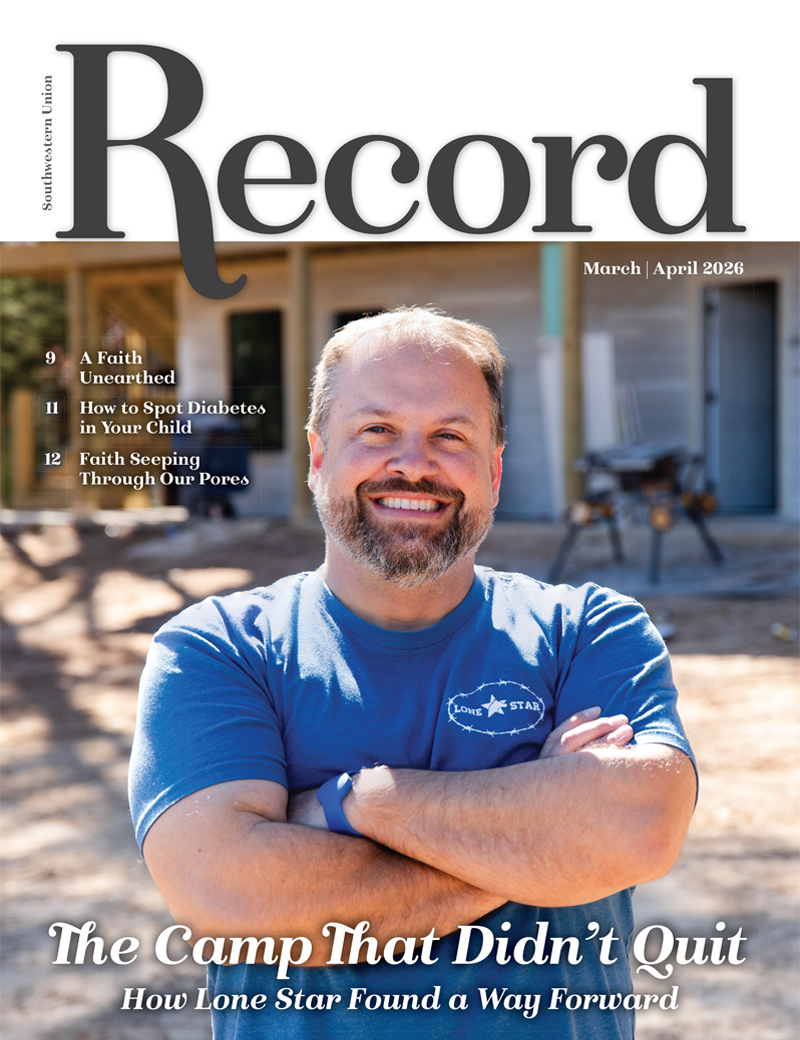Above and Beyond

As a young girl, Kisha Norris questioned why she and her mother always packed four extra sandwiches for school lunch. She had no other siblings, and it seemed like a lot of extra work. “My mom was an Adventist teacher,” says Norris, Texas Conference Vice President for Education. “When you’re an Adventist teacher, you go all in.”
Every evening, Norris and her mother made extra sandwiches, just in case a student didn’t have anything to eat. This small missionary act made a big difference in her life. Thanks to the example of her mother and other caring teachers, Norris realized that being a teacher means that you go above and beyond to help students.
Adventist education is unique. It’s a safe setting with a strong curriculum. Importantly, it’s a place for children to learn about Christ in the classroom. This environment is special, but there is another element that takes Adventist education from special to unique. That is the missionary spirit of teachers and staff who go “all in” to educate and love their students. This spirit not only helps the students succeed, but it also reflects in their lives as they learn by example to live with an attitude of Christian service.
“What parents and students are going to get at our schools is that intentionality of Christ-centered education with academic rigor,” says Southwest Region Conference Education Superintendent Buford Griffith III. “Having worked at both public schools and Adventist schools, I can say with strong conviction that I will stand our Adventist curriculum up to any other curriculum out there. Yet, there’s more to education than just reading, writing and arithmetic. It’s more than homework and lectures. It’s about relationships. It is a true calling.”
The missionary spirit of Adventist educators became even more evident as the global pandemic forced schools all around the world to close their doors. Suddenly, teachers were expected to pick up where they left off in an unfamiliar, virtual environment. This required a completely different skill set. “I tell people, this is not less work, this is more work,” Norris says.
Without hesitation, teachers around the Southwestern Union opened their classrooms online. Yet, when some students didn’t log into class, teachers began to worry. They made phone calls and discovered that many families were missing a lot more than just internet access. Some parents had lost their jobs and couldn’t even buy groceries. In response, the teachers created and hand delivered classroom packets for those without internet. They also took it upon themselves to leave gift cards for groceries with the school packet.
“These families will forever be changed because someone took the time to know what was going on,” Norris says. “It’s a testament to our God and how He has loved them and cared for them, so that they can’t help but spill that love over to the families and their kids.
“This is the difference in our education. I’m not saying that other teachers in other schools don’t care, but I’m saying that we have made it an investment to make sure that these kids are not only part of our school, but part of the kingdom. So their whole person, their whole family and their lives mean something to us.”
Both teachers and students worked hard to complete the 2020 Spring semester during these unusual circumstances. As the school year wrapped up, Tulsa Adventist Academy decided to celebrate their graduating students in a special way. One by one, they drove to each house of their graduating students, including kindergarten graduates. The students dressed up in their graduation regalia as teachers delivered diplomas and sang songs to the children.
“Our teachers are very loving,” says Oklahoma Conference Education Superintendent Tim Kripps. “It was pretty cool to watch their curbside graduation online. In a way, the teachers are now in more contact one-on-one with parents and students than ever before.”
These acts of service and love are examples for students on how to live more like Christ. Adventist education builds on these lifelong lessons by also offering ministry and mission opportunities for students. Students have the opportunity to attend mission trips, get involved in worship, and to practice community service.
When Arkansas-Louisiana Conference Education Superintendent Stephen Burton worked in a small school several years ago, his class decided to start collecting aluminum cans for a mission project. The class talked about prayer, and prayed for God to bless the project. One student raised his hand and asked, “Are we praying that God will encourage everyone to litter so that we can be successful?”
“We don’t want people to litter, we just want God to bless what we’re doing,” Burton responded. The class took off down the side of the road near the school, gathering up cans. On the way back, a gentleman stood out in his yard and asked what the students were doing.
“We told him about our mission project,” Burton shared. “He went into his house and came back with a huge trash bag of aluminum cans. When we got back to the school, there was just electricity in the air. These opportunities give students a chance to learn how to serve, and to recognize God’s blessing. I saw that in my son’s life, and in my daughter’s life as well. They changed from a child to a young adult with a vision and a mission. Our schools give that opportunity.”
Thanks to the missionary spirit of teachers, Adventist schools provide a unique educational experience for students. Children are academically prepared for life by a proven curriculum in a setting that teaches them about the love of Christ.
“What’s important is salvation for our children,” says Texico Conference Education Superintendent Derral Reeve. “Our teachers point the child to Christ and prepare them for a life of service. In fact it’s more than just important, it’s eternity.”


